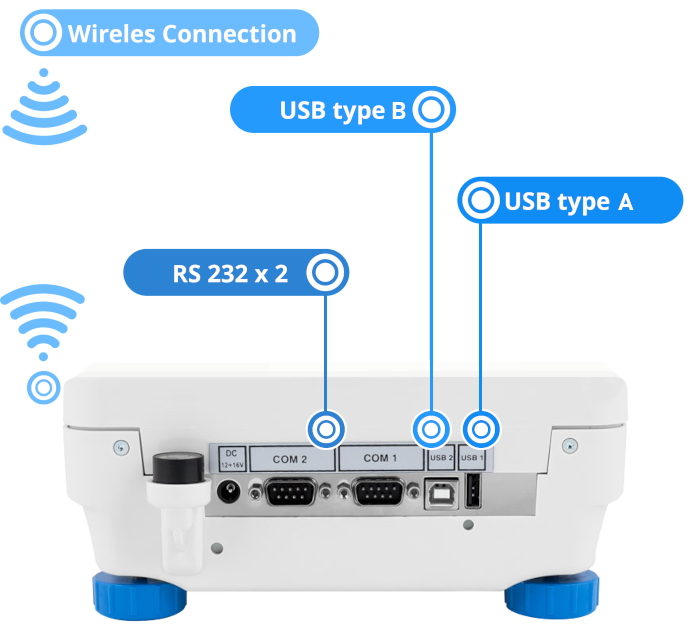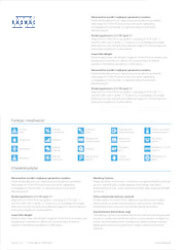Bilancia di precisione 200/2000.R2

Interfacce
2 x RS 232, USB A, USB B e della connessione „Wireless” (opzionale).
Le nuove bilance di precisione serie PS.R2, similamente alla vecchia serie PS dispongono di due tipi di piatto di pesata con dimensioni diverse: 128x128 mm o 195x195 mm. Le bilance con il piatto di dimensioni minore dispongono di uno chermo anti correnti d’aria. La precisione della bilancia e l’accuratezza della misura viene assicurato da un sistema di calibrazione interna che misura i cambiamenti della temperaura. La calibrazione viene eseguita ad intervalli di tempo prefissati ed ogni volta che il cambiamento della temperatura supera i limiti impostati
La struttura e costruita in materaile plastico ed il piatto di pesata e in acciaio inox.

Database
I dati sono registrati in 5 database:
- utilizzatori (fino a 100 utilizzatori),
- prodotti (fino a 1000 prodotti),
- pesate (fino a 5000 pesate),
- tare (fino a 100 tare),
- memoria ALIBI (fino a 100 000 pesate).

Accesso veloce alle informazioni
- Database – accesso diretto ai database
- Function – accesso di retto alle funzioni di base
- Da F1 a F4 – Funzioni programmabili e pulsanti di navigazione sul menu
Le bilance possono essere connesse ad un PC per mezzo dell’interfaccia USB laddove venga installato sul PC un software dedicato (o un driver). Il cosidetto driver puo essere scaricato direttamente dal sito Radwag nella sezione „SUPPORTO”











 Additional fee
Additional fee

 Albanian
Albanian Danish
Danish Nederlandse
Nederlandse Estonian
Estonian Finnish
Finnish Hungarian
Hungarian Icelandic
Icelandic Kazakh
Kazakh Latvian
Latvian Lithuanian
Lithuanian Macedonian
Macedonian Norwegian
Norwegian Portuguese
Portuguese Romanian
Romanian Russian
Russian Slovak
Slovak Slovenian
Slovenian Swedish
Swedish Ukrainian
Ukrainian Serbian
Serbian Montenegrin
Montenegrin Português (Brasil)
Português (Brasil) Deutsch
Deutsch English
English Español
Español Français
Français Japanese (日本語)
Japanese (日本語) Polski
Polski Türkiye
Türkiye Česky
Česky USA
USA 中文
中文












